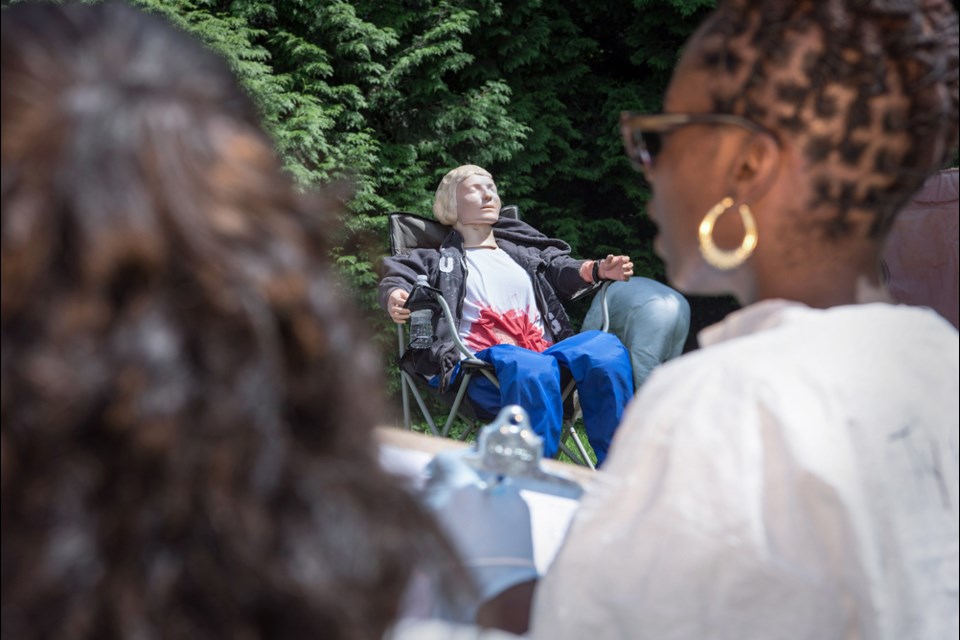Dale Fitzgerald, a dummy gruesomely murdered and eviscerated at BCIT’s Burnaby campus last week, was not who he appeared to be.
Before being killed and having his organs harvested for the black market, he was really Frank Fitzgerald – a sleazebag who had murdered his twin brother and assumed his identity in order to date his girlfriend, Mindy.
Those are just a few parts of a crime puzzle 27 California State University students are working to figure out at a two-week, made-to-order field school being put on by BCIT’s Forensic Science and Technology Department this month.
“It’s very elaborate,” said Jason Moore, a faculty member who spent about six months cooking up the scenario. “Maybe I should write a crime novel after I retire.”
The Cal State undergrads spent the first day of the field school last week combing over a mock crime scene set up by Guichon Creek.
Designed to give students a taste of Canada, it replicated a provincial campground site – with a bloodied Frank sitting dead in a lawn chair in the middle of it.
He, his girlfriend Mindy (an acupuncturist who practices traditional medicine) and their partner in crime, John, had been at the campground supposedly looking to poach bears for gall bladders and other parts used in traditional medicine.
But while Frank and Mindy secretly plotted to turn John in for a $20,000 reward, John was preparing to murder them both and harvest their organs – something he had done to two previous victims (including the real Dale Fitzgerald with Frank’s help) buried in the woods nearby.
And he might have gotten away with it too if it weren’t for that meddling park ranger who showed up before he’d had a chance to finish the job.
“I’ve probably revised it three or four times,” said Moore of the plot. “It’s had to change as we’ve worked with each of the forensic experts.”
Figuring out Frank’s real identity will be tricky, for example, because the driver’s licence in his wallet says he’s Dale.
“It was the forensic odontologist’s idea to do that,” Moore said. “Because DNA for twins is identical, DNA in that sense is not helpful. You need the teeth records to identify them.”
The visiting students will spend the bulk of their time at BCIT in lectures and in the lab, processing the evidence they’ve collected.
After figuring out whodunit, they’ll also need to stand by their findings in a mock court of law, testifying as expert witnesses.
It’s the first time the technical institute has put together a field school for visiting university students.
Dean Hildebrand, associate dean of BCIT’s School of Computing and Academic Studies, said Cal State does a field school abroad as part of its undergrad forensics program.
After years of taking students to the U.K., he said the university was looking for a change.
“They wanted to get a Canadian perspective,” he said.
BCIT will charge about $40,500 for putting on the school, Hildebrand said, but making connections with Cal State will be the biggest benefit of the project for the institute.
“I just think it’s great to have these linkages with other schools,” he said. “The professor’s another forensic expert, and they’re good linkages. It’s good for BCIT, it’s good exposure for the school, it’s good exposure for the program, and it’s fun.”



